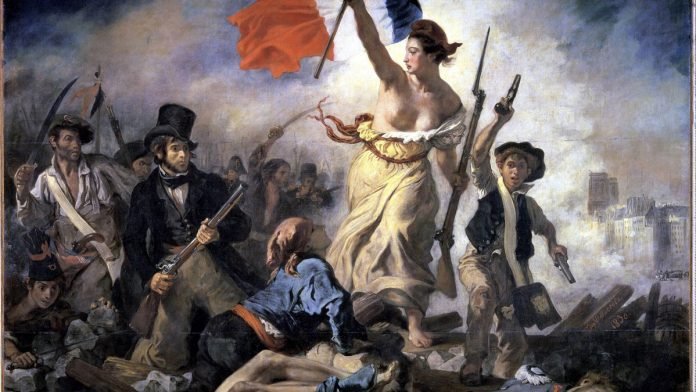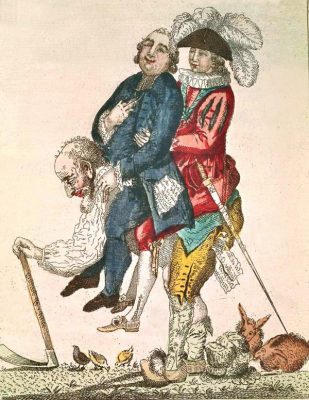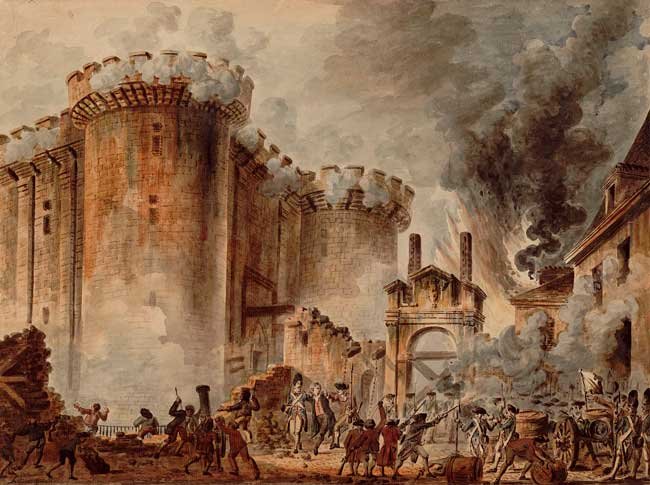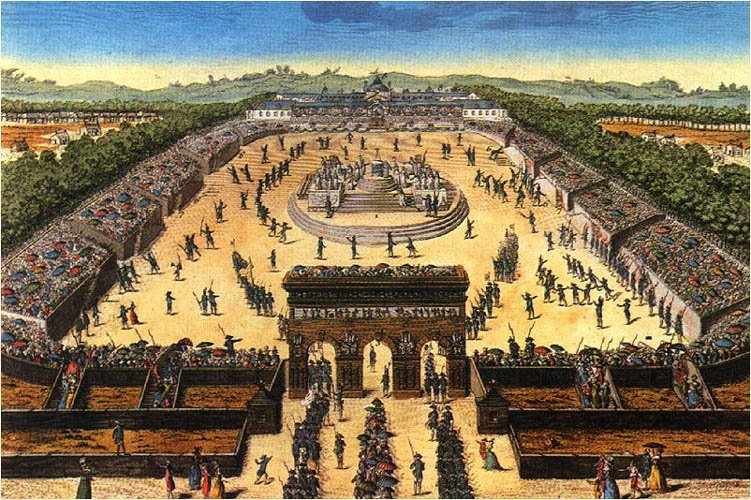
The Storming of the Bastille
Throughout the annals of history, there exist moments that resonate with such intensity that they leave an indelible mark upon the collective memory of a nation. Yet, there are certain events that possess an extraordinary power, shaking the very foundations of Europe itself and causing even the most mighty kings and emperors to tremble in anticipation of the profound repercussions that would ensue.
The Storming of the Bastille, without a shadow of a doubt, belongs to this exceptional category—a defining moment forever woven into the intricate tapestry of French history. It stands as an enduring testament to the unwavering spirit of the French people, a beacon of their resolve in the face of relentless waves of change that swept across the land.
Leading up to that fateful day, France found itself in the grip of an economic crisis, austerity had been placed upon the people of France, and a tempest began to brew on the horizon. Tensions escalated between reformist factions, seeking to breathe new life into the nation, and conservative elements clinging to the vestiges of the Ancien Régime. It was a time of profound discontent, a time when voices yearned to be heard.

Amidst this turmoil, Jacques Necker, the esteemed finance minister, extended an invitation for writers to express their vision for the organisation of the Estates-General. In France under the Ancien Régime, the Estates General or States-General was a legislative and consultative assembly of the different classes of French subjects. It had a separate assembly for each of the three estates, which were called and dismissed by the king.
Third Estate, or Tiers État

One response, however, stood out—a pamphlet that would shake the very foundations of French society. It was the work of Abbé Emmanuel Joseph Sieyès, a writer and clergyman whose words would resonate far and wide.
Published in January 1789, Sieyès’s Third Estate, or Tiers État, unleashed a powerful argument. It proclaimed that the common people of France, the third estate, constituted a complete nation in themselves, unburdened by the weight of clergy and aristocracy. Sieyès called for genuine representation in the Estates-General, equal to the other estates combined, and advocated for individual voting instead of the archaic order-based system.
His ideas, reminiscent of the fervour of John Lilburne known as Freeborn John leader of the English Levellers and the later Thomas Paine, ignited the flames of change, fueling the demand for political and social transformation and challenging the very core of the existing hierarchy.

And so, the stage was set for the extraordinary events that would follow. On that fateful day, 11 July, the dismissal of Jacques Necker, the sympathetic finance minister, by King Louis XVI was the spark that ignited the fury of the Parisians. Fearing the might of the royal army or the looming threat of foreign mercenaries, crowds formed, their hearts aflame with determination. They sought to arm themselves, to protect against potential assaults on their liberty.
In the early hours of 14 July, the restless masses besieged the Hôtel des Invalides, their eyes also set on a more significant symbol of oppression—the Bastille. The Storming of the Bastille unfolded, not merely as an act to secure arms and ammunition, but as a resounding blow against the shackles of royal authority.

This fortress prison, a grim symbol of arbitrary royal indictments, held within its walls a history of oppression. And on that day, a revolutionary mob from the Faubourg Saint-Antoine, driven by an unwavering desire for freedom, would liberate the few souls confined within.
But the significance of the Storming of the Bastille extended far beyond its immediate objectives. It marked a turning point, a rupture with the old order. France, now awakened, witnessed a cascade of remarkable developments.
On that eventful evening of 4 August, feudalism itself was abolished, casting aside the chains of an outdated system. And on 26 August, the Declaration of the Rights of Man and of the Citizen rang out, proclaiming the inherent rights and liberties that would shape the course of history.
Declaration of the Rights of Man and of the Citizen

In fact, Bastille Day or “la Fête Nationale,” transcends a mere commemoration of the storming of the Bastille. It encompasses the grander tapestry of the “Fête de la Fédération,” held on 14 July 1790—a celebration of national unity and reconciliation. Organised by the National Assembly, it solidified the collective aspirations of the French people, a testament to their unwavering commitment to a better future.
On that occasion, Jean Sylvain Bailly, mayor of Paris, declared:
“We suggest that this meeting (…) be sworn on the next 14 July, which we shall all see as the time of liberty: this day shall be spent swearing to uphold and defend it”.
Charon, President of the Commune of Paris, stated the famous motto:
“Frenchmen, we are free! Frenchmen, we are brothers!”

The Storming of the Bastille remains a pivotal moment, a juncture where the new era triumphed over the remnants of the Ancien Régime. Its legacy endures, serving as a timeless reminder of the indomitable power of collective action and the relentless pursuit of liberty. As we commemorate Bastille Day, let us reflect on the courage and resilience of those who stood at the forefront of change. Let us strive to uphold the values of unity, equality, and freedom that emerged from that historic event, for they continue to guide us in the quest for a better tomorrow.
‘Bonne Fete Nationale!‘
Support Independent Journalism Today
Our unwavering dedication is to provide you with unbiased news, diverse perspectives, and insightful opinions. We're on a mission to ensure that those in positions of power are held accountable for their actions, but we can't do it alone. Labour Heartlands is primarily funded by me, Paul Knaggs, and by the generous contributions of readers like you. Your donations keep us going and help us uphold the principles of independent journalism. Join us in our quest for truth, transparency, and accountability – donate today and be a part of our mission!
Like everyone else, we're facing challenges, and we need your help to stay online and continue providing crucial journalism. Every contribution, no matter how small, goes a long way in helping us thrive. By becoming one of our donors, you become a vital part of our mission to uncover the truth and uphold the values of democracy.
While we maintain our independence from political affiliations, we stand united against corruption, injustice, and the erosion of free speech, truth, and democracy. We believe in the power of accurate information in a democracy, and we consider facts non-negotiable.
Your support, no matter the amount, can make a significant impact. Together, we can make a difference and continue our journey toward a more informed and just society.
Thank you for supporting Labour Heartlands











